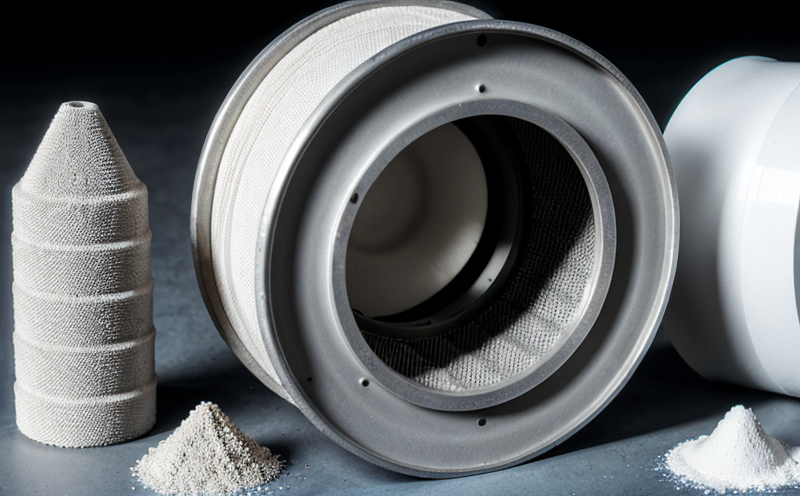EN 1363 Fire Resistance Testing of Marine Structures
The European Standard EN 1363 outlines the requirements and methods for determining the fire resistance properties of structural materials used in marine applications. This standard is critical for ensuring that the materials used in shipbuilding are capable of withstanding the extreme conditions encountered during a fire scenario at sea. Compliance with this standard can significantly enhance safety on board vessels, protecting crew, passengers, and cargo from potential hazards.
Fire resistance testing under EN 1363 involves exposing specimens to controlled fire environments and evaluating their ability to maintain structural integrity over time. The test is particularly important for materials used in critical areas such as bulkheads, decks, and other load-bearing structures that are exposed to the risk of fire. The standard specifies parameters like exposure duration, temperature profiles, and loading conditions that simulate real-world scenarios.
The testing process begins with precise specimen preparation, ensuring uniformity and consistency across all samples. Specimens are typically cut from larger pieces of the material under test, maintaining the original properties as closely as possible. Once prepared, these specimens undergo exposure to a standardized fire environment designed to mimic the conditions they would encounter on board a ship.
The testing apparatus used for EN 1363 includes specialized furnaces capable of generating temperatures up to 800°C and beyond, depending on the test requirements. These furnaces are equipped with controlled atmospheres that can simulate both open flame and smoldering conditions. The specimens are placed in these environments for a specified duration, after which their structural integrity is assessed.
Key parameters measured during testing include deformation, collapse resistance, and mass loss. Compliance with EN 1363 ensures that materials meet the required standards of fire resistance, ensuring they can withstand prolonged exposure to high temperatures without compromising safety or performance. This compliance is crucial for regulatory bodies like Lloyd’s Register and other classification societies.
EN 1363 testing is not only a technical process but also one that has significant implications for ship design and operational safety. By adhering to this standard, manufacturers can demonstrate the fire resistance properties of their materials, thereby enhancing the overall safety profile of marine structures. This assurance is particularly valuable in high-risk areas where even minor breaches could lead to catastrophic failures.
The importance of EN 1363 testing cannot be overstated. It helps ensure that the materials used in shipbuilding are robust enough to withstand fire without compromising structural integrity, which is critical for maintaining safety and preventing potential disasters at sea. By complying with this standard, manufacturers can also enhance their reputation as leaders in quality and safety.
In summary, EN 1363 testing is a vital step in the development of marine structures that ensures materials meet stringent fire resistance requirements. This process involves rigorous specimen preparation, exposure to controlled fire environments, and detailed parameter measurement. Compliance with this standard not only meets regulatory requirements but also enhances safety and operational reliability.
Benefits
- Ensures compliance with international regulations and industry standards.
- Enhances safety and reliability of marine structures against fire risks.
- Improves the reputation of manufacturers as leaders in quality and safety.
- Promotes trust among regulatory bodies like Lloyd’s Register.
Why Choose This Test
The EN 1363 fire resistance test is an essential step in ensuring that materials used in marine applications meet the highest standards of safety and reliability. By choosing this testing, manufacturers can demonstrate their commitment to quality and safety, thereby enhancing their reputation in the industry.
Compliance with EN 1363 not only meets regulatory requirements but also significantly enhances operational safety on board ships. This ensures that critical areas such as bulkheads and decks are robust enough to withstand extreme conditions without compromising structural integrity. The test is particularly valuable for materials used in high-risk areas where even minor failures could lead to catastrophic consequences.
Additionally, successful completion of this test can help manufacturers secure important certifications and accreditations from leading classification societies like Lloyd’s Register. These accolades not only enhance reputation but also open doors to new markets and partnerships.
The process of selecting the right materials for marine applications is complex and requires a deep understanding of fire resistance properties. By choosing EN 1363 testing, manufacturers can ensure they are making informed decisions that align with international best practices.
Customer Impact and Satisfaction
The impact of complying with the EN 1363 standard extends beyond regulatory compliance; it directly influences customer satisfaction by enhancing safety and reliability. Customers, including ship owners, operators, and classification societies, can have confidence in materials that meet these stringent standards.
By ensuring that only high-quality fire-resistant materials are used in marine structures, manufacturers contribute to a safer operational environment. This not only protects the crew but also safeguards valuable assets such as cargo and equipment. The reliability of these materials is crucial for minimizing downtime and maintenance costs associated with structural failures.
The satisfaction derived from EN 1363 compliance translates into long-term partnerships with satisfied customers who appreciate the commitment to excellence. This can lead to increased market share, repeat business, and a reputation for innovation and quality in material science.
Frequently Asked Questions
- Compliance with international standards and regulatory requirements.
- Enhanced safety and reliability for marine structures.
- Improved reputation as a manufacturer of high-quality, fire-resistant materials.





